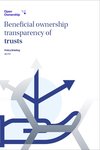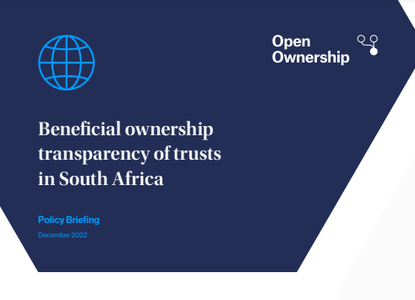Beneficial ownership transparency of trusts
Help us understand how you are making use of resources from the Open Ownership website by filling out this short survey
Publication type
Briefing
Publication
Topics
Trusts and legal arrangements
Sections
Research
Open Ownership Principles
Coverage
Summary
This policy briefing analyses the existing policy and regulatory framework on the BOT of trusts at an international level, and highlights research and policy recommendations on the issue whilst identifying the gaps for further research. The aim is to help policymakers and those implementing or supporting BOT to think through various issues and approaches toward ensuring the BOT of trusts, as well as to outline considerations for operationalisation by identifying emerging best practice in legal and policy reforms.
Key points
- Trusts are highly complex and secretive asset holding legal arrangements, which can be even more slippery than offshore shell companies.
- The lack of understanding and uniformity among jurisdictions on the concept and treatment of trusts has also contributed to making these corporate entities highly desirable for criminals.
- Recently efforts to ensure transparency have intensified, including the requirement to establish a central BO register for trusts by the 5th EU Anti-Money Laundering Directive, however there is still room for improvement at policy and regulatory level.
- Ensuring transparency of trusts is vital to effectively combating financial crime, including money laundering, corruption, and terrorist financing.
- Where jurisdictions are implementing BOT for natural persons, and when trusts feature in the ownership structure, the beneficial ownership of trusts should, at a minimum, be made available to the public.


